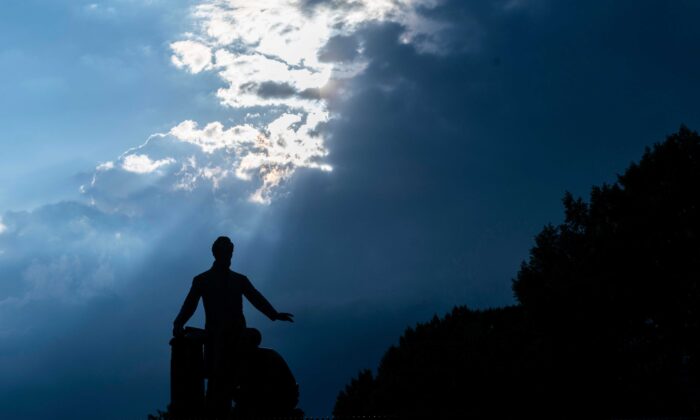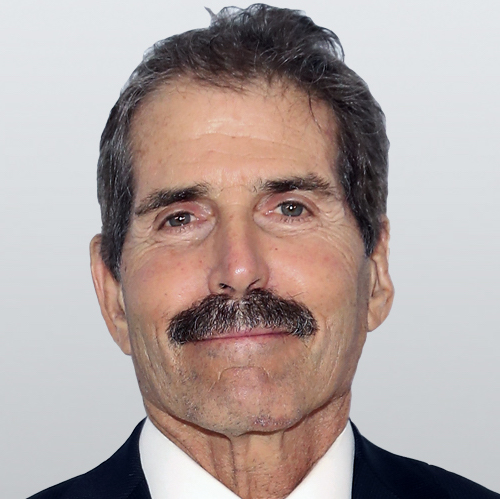
Commentary by John Stossel

Was the power on in your house this morning?
If so, thank fossil fuels!
A few parts of America do get energy from other sources. Washington state has fast-flowing rivers that allow Washingtonians to get most of their electricity from hydroelectric power. Iowa now gets about 40 percent of its electricity from wind.
But most of us get power from the much-hated fossil fuels, primarily natural gas and coal.
Burning them does pollute, although government-mandated (Yes, government has done some useful things.) controls such as scrubbers in smokestacks have nearly eliminated the dangerous pollutants, such as sulfur dioxide.
But fossil fuels do still emit greenhouse gases, and that probably increases global warming. Yes, I know some scientists doubt that man’s activities contribute much, but I’ll go with the large group that says we do.
Now, Black Lives Matter protesters say fossil fuels create “environmental racism” because black neighborhoods are often located in low-lying floodplains or are close to refineries and other energy infrastructure. Activist Jane Fonda recently joined them to say, “The fossil fuel industry will have to pay!”
But I suspect Fonda and other anti-fossil fuel protesters have no clue about where the electricity that powers their electric cars comes from.
Today, Americans still get 81 percent of our energy and 62.7 percent of our electricity from fossil fuels. Oil fuels about 91 percent of all transportation.
Without fossil fuels, much of the world would freeze in the dark. We just don’t yet have enough alternatives.
One country almost does: Iceland.
Iceland has hot springs, so geothermal power provides 25 percent of its juice, and hydropower provides most of the rest.
But even in Iceland, that’s not enough. Iceland still burns oil.
The protesters ought to watch the new documentary, “Juice: How Electricity Explains the World.” My new video this week is a short (4 minute) version of it.
“Electricity doesn’t guarantee wealth,” says energy journalist Robert Bryce, “but not having it almost always means poverty. The defining inequality in the world today is the disparity between the electricity-rich and the electricity-poor. Three billion people in the world today use less electricity than what’s used by my kitchen refrigerator. To empower the low-watt world, we’re going to need a lot more juice.”
Hate coal all you want, but it still accounts for about 38 percent of global electricity production. Even Japan, home to the Kyoto Protocol, plans to build 22 new coal-fired power plants.
Pitiful and expensive American “green” mandates won’t dent the world’s greenhouse gas emissions.
Americans take electric light for granted, but Bryce’s film reminds us: “Electricity allowed us to conquer our oldest foe: darkness. For millennia, the cost of having well-lit spaces at night was so high, only the very rich could afford it.”
That’s still true in much of the world. About 300 million people in India have no access to electricity.
Many cook and heat their homes by burning cow dung. It’s why about 1.3 million Indians die from indoor air pollution each year. Cooking with cow dung, Bryce says, “is akin to burning 400 cigarettes an hour in your kitchen.”
Pollution like that is a much bigger threat to disadvantaged people than greenhouse gases American activists complain about.
“Darkness kills human potential. Electricity nourishes it,” says Bryce.
But what about climate change? I’m told that’s why we must move to renewable energy.
Renewables, Bryce replies, simply cannot supply “the enormous amount of electricity the world needs at prices consumers can afford.”
Environmental activist Michael Shellenberger points out that he hears environmentalists say: “People must reduce energy consumption! (But) the only people in the world who say that are rich people.”
“Energy poverty vs. climate change. There is no easy, one-size-fits-all solution,” concludes Bryce. “But there are about 3 billion people in the world without adequate access to electricity… and they will do whatever they have to do to get the electricity they need.”
John Stossel is an award-winning news correspondent and best-selling author. His latest book is “No, They Can’t: Why Government Fails—But Individuals Succeed.”
Views: 110
Comment
-
Comment by Penny Gray on October 5, 2020 at 12:52pm
-
Excellent commentary, thanks for posting!
© 2024 Created by Webmaster.
Powered by
![]()
You need to be a member of Citizens' Task Force on Wind Power - Maine to add comments!
Join Citizens' Task Force on Wind Power - Maine